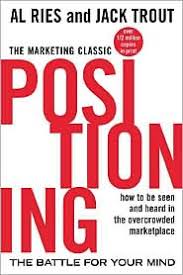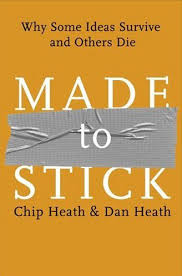Today, I spoke with both Jack Covert and Todd Sattersten, who both operate a very popular website called 800-CEO-Read. They just published The 100 Best Business Books of All Time and are here to talk about the importance of starting a blog if you’re interested in writing a book, as well as their favorite business books and favorite classic business books.
How many business books are produced in a given year and what makes some more important than others?
11,000 business books were published in the U.S. in 2007. That is a nine-story tall stack of paper.
Three things separate the great books from the merely good books: accessibility, applicability, and the quality of the idea. Put another way: how readable is the material? Can I use this today to my work? And (the most subjective) would I use this in my work?
Books continue to be an important part of building personal brands. Seth Godin, Guy Kawasaki, and Gary Vaynerchuk all published books in the last year. Each is well-established in the blogosphere, but each also understands that books allow their ideas to reach a different audience and allow their work to be read more easily as a whole.
800-CEO-READ is a little different in that we specialize in selling business books. We have primary experience in this industry. We know publishers. We know distributors. We know our customers. So for us, the format was a natural.
Writing a book is not necessarily about providing extra value. What books do is establish authority. There is a primary message. Books have a beginning, middle, and end. They are still a superior format for efficient consumption of the material itself. Blogs are effective in reaching a certain audience and we have been actively blogging since April 2004, but let’s remember their still-limited reach and the quick expiration date of the material.
“The bottom line is that you need to blog and you need to write books. Both are good for brands.”
What are your top three favorite business books of the past two years and why?
Made to Stick by Dan Heath and Chip Heath: The Heath brothers deliver a flawless volume on how to make your ideas last longer by encouraging such techniques as telling stories and delivering the unexpected. We are all in the idea business. We are all trying to convince someone of something whether it is our boss, our fellow PTA members, or our kids. But in a world teeming with ideas, how do you get yours to be remembered? The Heaths’ advice is priceless—and they use their own advice which means you’ll remember this book long after you put it down. Our Business Book of the Year in 2007.
Tribes by Seth Godin: This is Seth’s most important book since Purple Cow. For Seth, leadership is about change, risk, hope, fear and faith. The subtitle says it all: We Need You To Lead Us. When is the last time a book demanded that of its reader? He delivers this idea about tribes ready to unite as soon as a leader steps up in his riff-based, stream of conscious approach. Our Business Book of the Year in 2008.
about change, risk, hope, fear and faith. The subtitle says it all: We Need You To Lead Us. When is the last time a book demanded that of its reader? He delivers this idea about tribes ready to unite as soon as a leader steps up in his riff-based, stream of conscious approach. Our Business Book of the Year in 2008.
Back of The Napkin by Dan Roam: Visual thinking was an en vogue concept for 2008. A number of books described different ways to communicate complex ideas using pictures, drawings and charts. Dan Roam uniquely delivers on the how. The decoder ring on page 141 reveals answers to the six basic questions of who/what, how much, where, when, how and why. That alone is worth the price of the book.
What are your top three favorite classic business books that you believe won’t be fading away anytime soon?
Positioning by Al Reis and Jack Trout: This is a must read for your audience. The authors say being number one in the mind of the customer offers enormous market advantage. “Being top of mind” can also mean owning a word, whether it is “Volvo = safety” or “800-CEO-READ = business books.” The theory of positioning was originally proposed by the authors in 1972 in a series of articles and is as important as ever in our information-flooded world.
Influence by Robert Cialdini: Recipority, making commitments, social proof, affection, authority and scarcity. These are the tools you must use to get people to do what you want. Cialdini’s book is eye-opening, bringing awareness to your every interaction, and its inviting, narrative style matches that of The Tipping Point and Made to Stick.
bringing awareness to your every interaction, and its inviting, narrative style matches that of The Tipping Point and Made to Stick.
Getting Things Done by David Allen: Getting Things Done is quickly becoming a classic with an expansive following. If Covey’s 7 Habits is the western take on personal productivity, then Allen’s GTD method is the Eastern Zen, “mind like water” view. Forget about managing time, information, or priorities, and concentrate on actions. It’s time to return to the to-do list.
Do you think more people will purchase the books in this book from 800ceoread.com, or will it just help the books sell more overall?
We wrote every review as an argument for why the reader should pick up the book. And we certainly encourage people to return to these books for advice. Where they buy them from doesn’t matter to us. We just hope that The 100 Best helps people sort through the thousands of business books on the market.
——–
Jack Covert is the founder of and chief mentor for 800-CEO-READ, a subsidiary of the Harry W. Schwartz Bookshops. Hired twenty-five years ago by the late David Schwartz to promote business and computer books to the Milwaukee business community, Jack used his considerable sales skills and innate business acumen to grow that 3-shelf business section into a 7 million dollar specialty business book retailer.
Todd Sattersten is 800-CEO-READ’s president, joining the company in 2004. Previously, he spent six years at GE and three years working with his father in the family sheet metal fabrication business. Todd received his BS in mechanical engineering from Michigan Technological University and his MBA from Marquette University. But Todd also has a love of The Big Idea and he saw endless potential in the future of 800-CEO-READ. Since joining the company, Todd has initiated such changes as a daily weblog, a semi-weekly podcast, and the monthly publication of essays on ChangeThis.







